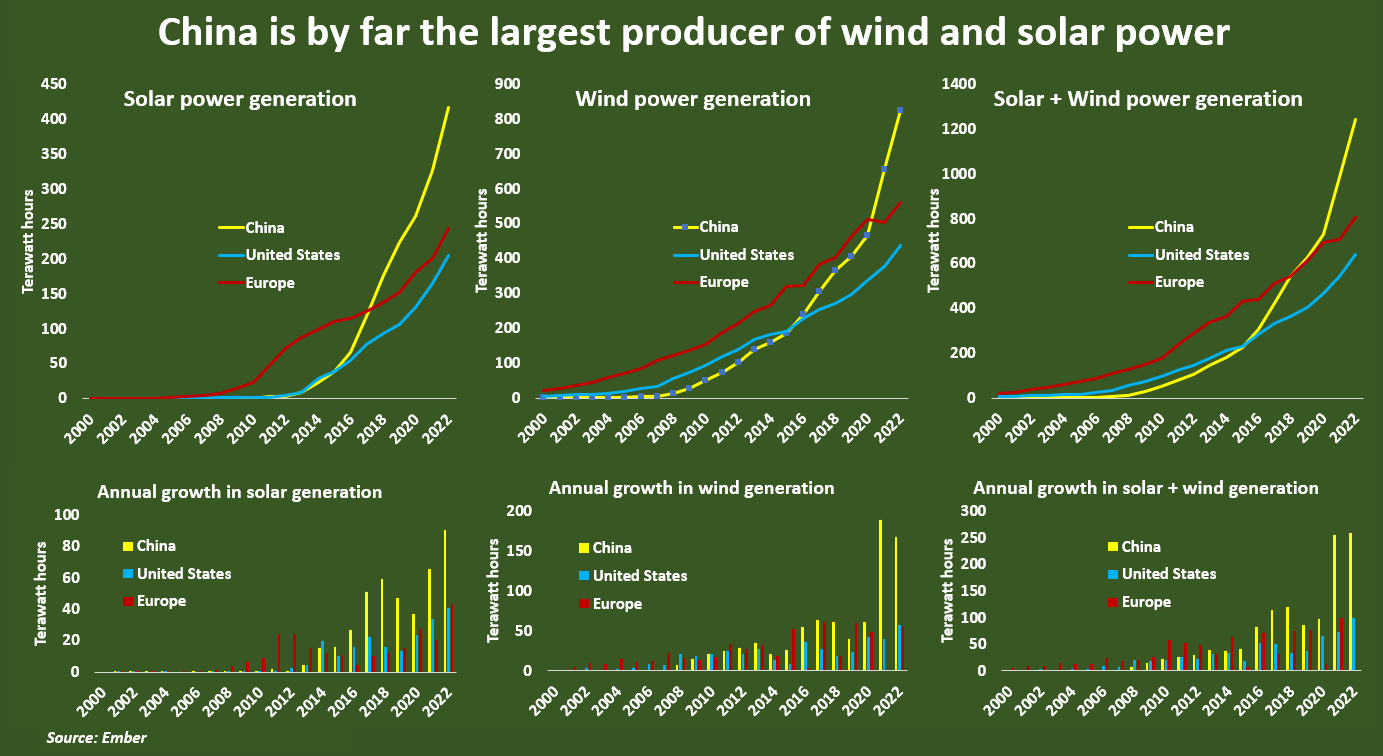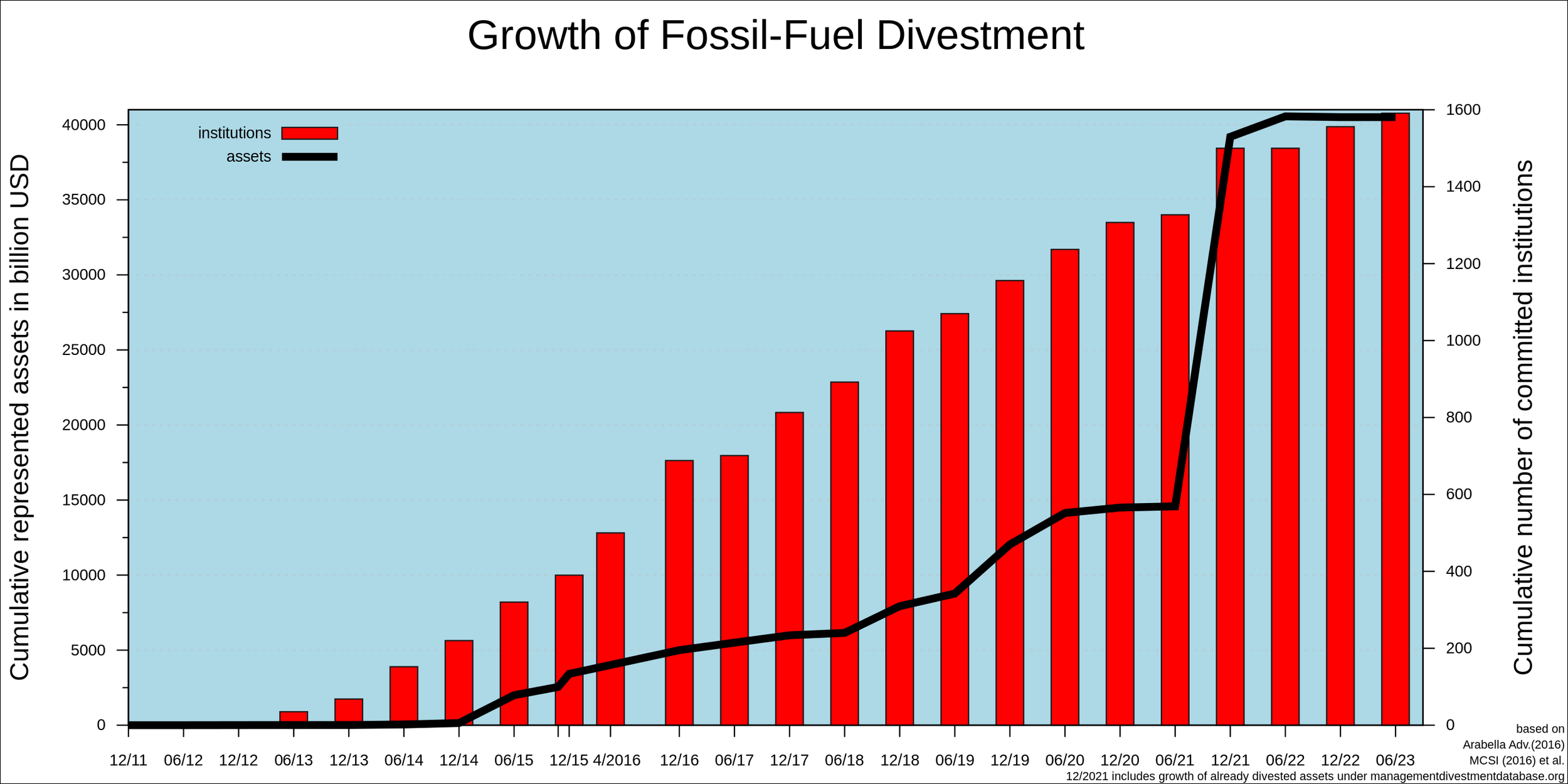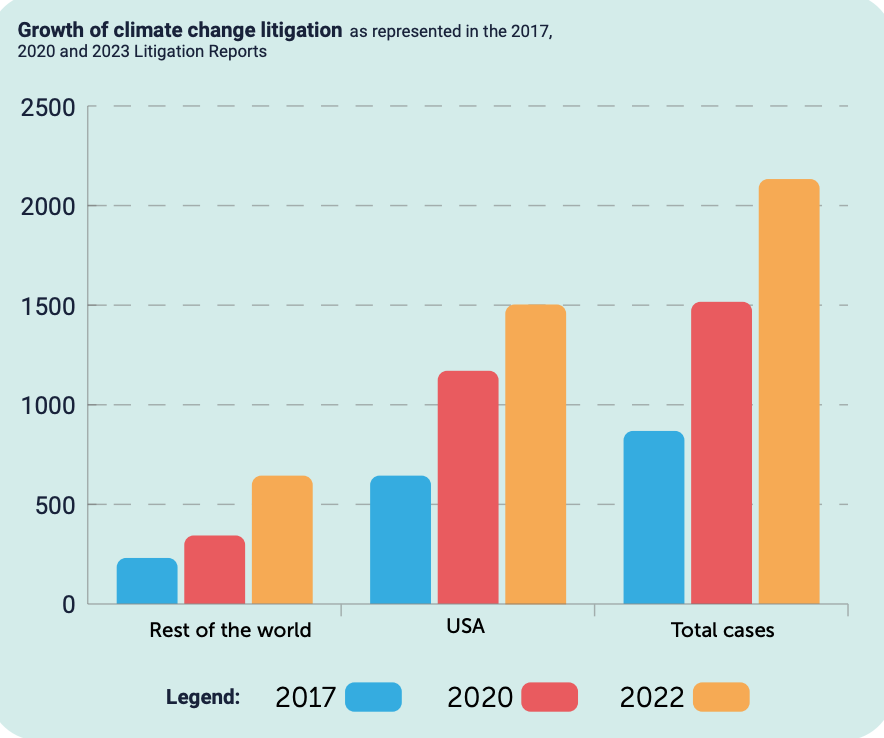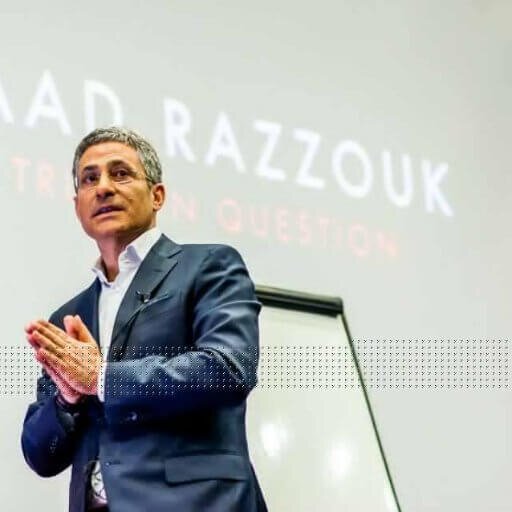9 Lessons from “The Angry Clean Energy Guy Podcast with Assaad Razzouk”
Neo: “Why do my eyes hurt? “
Morpheus: “You've never used them before.”
~The Matrix
I was reminded of this quote many times over the past few weeks as I binge-listened to the first 78 episodes of the "Angry Clean Energy Guy" podcast with Assaad Razzouk. Part of my ongoing education on environmental topics, the podcast series gives a dramatically fresh perspective. It covers the current global picture regarding humanity’s energy use, our reliance on fossil fuels, and how pervasive and destructive the related infrastructure has been on our environment, culminating in the fight of our generation: combating climate change.
Assaad is a former financial services professional, currently the chief executive of a clean energy company, based in Singapore. He has given Ted talks, spoke at numerous conferences and events, is a published author and advocate for sustainability and fighting climate change. Assad rings the alarm on this existential threat for life on Earth that demands our immediate attention and action.
The "Angry Clean Energy Guy" podcast delves deep into the issue, offering a plethora of insights and lessons on how we can confront the climate crisis. It is highly informative, and I found Assaad’s no-nonsense, direct style both educational and entertaining.
And amazingly, like most things in life, the solution for effectively combatting climate change is hard, yet very simple. We must:
(A) Significantly reduce greenhouse gas emissions by sunsetting the use of fossil fuels, such as coal, oil and gas;
(B). Accelerate and complete world transition to clean energy, such as wind, solar and hydro power; and
(C) Plant forests and trees: the known method to absorb CO2, as opposed to the often touted but unproven (and arguably barely existing) carbon capture and storage technologies.
With that as our backdrop, here are my take-aways from the podcast series, and the 2019-2023 episodes to date.
1. Transitioning to Clean Energy is a Must - and Happening Already
One of the most resounding messages from the podcast is the imperative to transition from fossil fuels to clean energy sources. As the world grapples with the dire consequences of burning fossil fuels, moving to sustainable energy alternatives is an urgent necessity.
This realization has been evident for some time, and is now widely acknowledged by nations and governments around the world. See, for example, the legally binding Paris Climate Agreement signed by more than 190 countries in 2015. Yet different countries are at different stages of actually doing something about it and transitioning their economies to renewable energy.
Renewable energy generation China vs US vs Europe 2000 to 2022
Assaad provides ample references throughout the podcast and quotes pieces of research that advance the discussion and debunk the criticism often thrown at renewable energy. For example, in a paper published in the September 2017 issue of Joule Magazine, scientist Mark Jacobson detailed roadmaps for 139 countries of the world to achieve 100% Clean and Renewable Wind, Water, and Sunlight by the year 2050. The roadmaps describe a future where all energy sectors are electrified or use heat directly with existing technology, energy demand is lower, and the electricity is generated with 100% wind, water, and sunlight.
Indeed, some countries have completely already transitioned: Costa Rica, was one of the first countries in the world to produce its electricity from 100% renewable sources. Two thirds of the energy generated by their national electricity supplier, Instituto Costarricense de Electricidad (ICE), comes from hydropower. Others in the developed and heavily industrialized world, such as China (see chart), are transforming their economies and gradually making serious investments in the infrastructure needed for energy transition.
Given technological advancements in recent decades, the gradual transition to clean energy is entirely possible, much needed, and becoming a growing reality around the world.
2. The Divestment Movement Away From Fossil Fuels is Gaining Ground
Globally, there is a fossil fuel divestment movement that is getting stronger and is impacting pension funds, asset managers, and the international investment landscape. It is an attempt to reduce climate change by exerting social, political, and economic pressure for the institutional divestment of assets including stocks, bonds, and other financial instruments connected to companies involved in extracting fossil fuels and/or engaging in deforestation.
Fossil fuel divestment campaigns emerged on campuses in the United States in 2011 with students urging their administrations to turn endowment investments in the fossil fuel industry into investments in clean energy and communities most impacted by climate change. In 2012, Unity College in Maine became the first institution of higher learning to divest its endowment from fossil fuels.
Dramatic multi-year growth in global divestment movement from fossil fuel companies and businesses
By 2015, fossil fuel divestment was reportedly the fastest growing divestment movement in history. As of July 2023, more than 1593 institutions with assets totaling more than $40.5 trillion in assets worldwide had begun or committed some form of divestment of fossil fuels.
This trend indicates a shift in financial priorities, with more investments flowing into environmentally responsible and sustainable ventures, with the focus being on the importance of the marginal dollar. In a world where large-scale change is driven by budgets and big initiatives, where the next dollar goes is crucial.
Divestment leads to higher costs of capital, make it less palatable for investors to channel money into fossil fuels-based energy projects. Little by little, it contributes to sunsetting the oil and gas industry as a wide area of participants from lending firms, to insurance companies and investment funds will slowly but gradually be having a harder time justifying such projects. This is what true capitalism looks like when one starts accounting for climate risk.
3. Systemic Change Takes Time and Consistent Effort
The podcast underscores the alarming increase in atmospheric CO2 levels. Over centuries, CO2 levels remained relatively stable, but in recent years, they have surged. To maintain a healthy planet, efforts to curb emissions and reduce CO2 levels to around 350 ppm (parts per million) in the atmosphere are crucial, yet we are already past 415 ppm and emissions of greenhouse gases do not appear to have peaked yet.
And to really understand how monumental the task is to transition curb greenhouse gas emissions, it is important to recognize two key realities:
High and increasing explicit and implicit governmental subsidies for fossil fuel industries
(1) The incumbent fossil fuel system and the related infrastructure are still benefitting from massive governmental support. For example, fossil fuel subsidies surged to a record $7 trillion in 2022 as governments supported consumers and businesses during the global spike in energy prices caused by Russia’s invasion of Ukraine and the economic recovery from the pandemic.
As the world struggles to restrict global warming, subsidies for oil, coal and natural gas are costing the equivalent of 7.1% of global gross domestic product.
That is more than governments spend annually on education (4.3% of global income) and about two thirds of what they spend on healthcare (10.9%). According to an IMF paper that provides updated estimates across 170 countries of explicit and implicit subsidies, i.e. undercharging for environmental costs and forgone consumption taxes, fossil fuel subsidies rose by $2 trillion over the past two years as explicit subsidies (undercharging for supply costs) more than doubled to $1.3 trillion.
(2) Large scale, history-making changes that had to happen, and were morally correct for humanity, have happened before. For example, it took decades, even centuries, and the British Empire using its Royal Navy to blockade the trans-Atlantic slave trade, and the US to fight a civil war over it, but eventually slavery was abolished.
Perhaps not so dramatically, but importantly from a perspective shift and worldwide use of newly available scientific data, smoking was once much more popular and is now a lot less prevalent. Once it was established that smoking can lead to lung cancer and other serious adverse health effects, habits changed and the tobacco industry had to dramatically retrench as a result.
So while renouncing fossil fuels and relying on an infrastructure that has been in place since the dawn of the Industrial Revolution is undoubtedly a monumental task, humanity has faced and overcome tough challenges before. It can - and it must - be done.
4. Corporate Responsibility is Key
The seismic shift described above requires the full involvement of every segment of society, including governments, citizens and—given their huge economic impact and carbon footprint—corporations. Companies have been under increasing pressure to be part of the climate solution, instead of continuing to be part of the problem.
While governments often lag behind in climate action, companies are taking the lead. Initiatives like RE100 showcase a commitment from corporations to source 100% of their energy from renewable sources, offering genuine hope for a sustainable future. It is a global initiative organized by the nonprofit organization The Climate Group and CDP, a charity that runs a global disclosure system for investors, companies, and governments to manage their environmental impacts.
The RE100 membership has steadily grown, and now comprises 420 influential corporates committed to 100% renewable electricity. Businesses all over the world can join the initiative and commit to procuring the totality of their electricity from renewable sources by a specified year. Strategies vary on how they plan to reach their targets, but notably this is different and significantly more relevant than vague “net zero” pledges. Net zero pledges are often attempts at greenwashing as they involve using the voluntary carbon markets to offset maintaining or even rising greenhouse gas emissions.
Voluntary carbon markets have grown in large part because of growing pressure to be seen as doing something, and a reluctance to reduce emissions. Lacking standardization, integrity and transparency, they are de facto inadequate permits and a fig leaf to continue to emit greenhouse gases at a perilous time. Zero emissions should be the goal, not net zero.
Lastly, Assaad points out another key driver slowly moving corporations in the right direction: employees are starting to push their own companies, as talent shifts toward companies that are actively and genuinely part of the solution. Boards and executive management teams across industries are now recognizing that added risk and are beginning to act.
5. Focus on What Matters: Who is Responsible for Historic Greenhouse Gas Emissions?
While there is a lot of public pressure these days exerted these days on individuals and the average person, a study published in 2017 by CDP reveals that just 100 of all companies have been responsible for 71% of the global greenhouse gas emissions since 1998. This is a startling revelation and shows that a small group of companies bears significant responsibility for greenhouse gas emissions.
Furthermore, another research called the 2017 Climate Change study by Brenda Ekwurzel of the Climate & Energy Program concludes that just 90 companies around the world have been responsible for nearly two-thirds of greenhouse gas emissions since the start of the Industrial Revolution in the late 1800s. The oil major ExxonMobil, for example, is the fifth-leading producer of greenhouse gas emissions in the world from 1880 to 2010.
This knowledge underscores the urgency of holding polluters accountable.
Assaad’s focus throughout the podcast is relentlessly shining a light on this issue and identifying the culprits, as opposed to individuals feeling guilty.
6. Climate Lawsuits Matter - and They Are Increasing
Excerpt from the Global Climate Litigation Report - Status Review 2023
Legal action against major fossil fuel companies is a pivotal strategy for climate activists. Lawsuits serve as a stark reminder that those who knowingly contributed to environmental degradation must be held responsible.
According to a report published by Columbia University in the summer of 2023, the number of climate cases has more than doubled in the last five years, and litigation is expected to continually increase. The report says that as of the start of this year, there are 2,180 climate change cases underway around the world, with 1,522 in the United States alone. There are cases in 55 countries, with many in Britain, Europe, and Australia, along with a growing number in Asia and the Global South.
Climate litigation represents a potent solution to change the dynamics of the fight against climate change as people are increasingly turning to the courts. Governments and private sector entities are being increasingly challenged and held to account.
Children and youth, women’s groups, local communities and Indigenous Peoples, among others, are also taking a more prominent role in bringing cases and driving climate change governance reform in more and more countries around the world.
The legal grounds for these cases are also widening. Both the United Nations Human Rights Council and the United Nations General Assembly have now recognized the right to a clean, healthy and sustainable environment. As such, new claims are being filed centered around the violation of legislation related to net zero targets, environmental impact assessments, advertising standards, and obligations under the Paris Agreement.
Climate litigation has set precedents for climate action all over the globe, going beyond the jurisdictions in which they were brought and empowering and driving similar action in other countries.
Asaadd is a trustee of ClientEarth, a public charity organization started by a lawyer with a laptop in 2007, that now has more than 250 staff in 8 countries.
7. We Must Stop Deforestation and Increase Reforestation
Humans have been cutting down forests for millennia, and the world has lost one-third of its forests since the end of the last ice age – 10,000 years ago. However, half of this loss occurred in the last century alone, with the main driver of deforestation being agriculture: humans clear forest to make space for grazing and croplands.
Global deforestation rates are still unsustainably high. Most of it occurs in the tropics where primary forests are rich in biodiversity. Tropical primary forest loss in 2022 totaled 4.1 million hectares, the equivalent of losing 11 football (soccer) fields of forest per minute. All this forest loss produced 2.7 gigatonnes (Gt) of carbon dioxide emissions, equivalent to India's annual fossil fuel emissions. But rates have also passed their peak: deforestation has reversed in many countries across temperate regions, and rates have slowed in many countries across the tropics.
Forests play a vital role in mitigating climate change, and various initiatives around the world are addressing this issue. Simply put, there is no solving climate change without solving deforestation. Thankfully, from Costa Rica, to Senegal, to China and India, efforts to combat deforestation and promote reforestation are gaining momentum. Here are just a few examples:
Ethiopia broke records last year by planting 353 million trees in one day as part of their massive tree planting campaign to plant 4 billion trees. The country aims to recover forest cover which declined from 30% in the 19th century to just 4% currently.
India is second to Ethiopia in their reforestation effort and the number of trees planted in a single day – 220 million trees were planted by more than a million Indians in the state of Uttar Pradesh. This was a huge jump from the 66 million saplings planted in their previous plantation drive.
Several countries Africa are cooperating in building a green wall of trees triple in size to the Great Barrier Reef. It is an ambitious natural regeneration project to bring back life to the deserted Saharan borders.
Philippines made tree planting a graduation requirement. Each student will plant 10 saplings each for a total of 175 million new trees per year.
9. Optimism in Climate Action
Despite the daunting challenges posed by climate change, there are reasons for optimism. The podcast highlights positive recent developments such as new legislation, the rapid growth of renewable energy, the increasing number of climate lawsuits that are forcing companies and governments to change, the rise in electrification, the continued decrease in renewable energy costs, the gradually stronger push-back against single use plastic (material largely based on oil& gas), and finally reaching near-peak CO2 emissions. Additionally, key players such as ratings agencies are beginning to adjust how they evaluate climate risk, and even monetary policymakers are beginning to consider climate change and transitioning to a lower carbon economy.
In California, consumers saved the state last year from blackouts during a severe heat wave by responding to an official appeal to curb their energy consumption. In Texas faced a similar situation, and not only were citizens called into action, the state’s renewable energy sector was also able to step up its production. Data released by the Electric Reliability Council of Texas noted how solar plants provided an additional 8 gigawatts of power to the grid at peak temperatures, contributing 9% more power than the state agency had expected.
Successes such as these, however modest, should be noted more widely. Hope is a boost not just for climate action but also for people’s individual wellness, judging by research on the correlation of optimism with better overall health.
The world is awakening and once it does, things start changing rapidly.
9. Individual Action Matters
Assaad Razzouk
Even as signs of the climate challenge mount, there are indications that innovation is opening new doors and that people can act effectively when they feel agency. The podcast encourages individuals to take action in their daily lives and advocate for change. It reinforces that collective efforts, like writing to pension plans and voting for climate-conscious leaders, can have a significant impact.
Here’s what each person can do:
Seek employment in a domain that directly contributes to fighting climate change
Work with nonprofits, through volunteering in their programs, or serving as a board member to help them fight climate change
Educate others: become a source of information and raise awareness through speaking, sharing articles, and being active on social media
Live sustainably: transition as much as possible away from fossil fuels based energy, reduce, reuse, recycle
There are thousands of examples of individuals all over the world taking the lead – that is how I learned about the influential environmentalists Afroz Shah, Severn Cullis-Suzuki, or young Lilly, of Lilly’s Plastic Cup, just to name a few.
Conclusion
The "Angry Clean Energy Guy" podcast is an eye-opener on many levels. It serves as a wake-up call to the pressing issues of climate change, the history of the movement, the massive issues we currently face, and the positive developments that are happening all over the world to fight global warming. These lessons and insights provide a roadmap for anyone interested in understanding the intricacies of the climate crisis and taking meaningful steps toward a more sustainable future. Our actions, both as individuals and as a society, shape the trajectory of the planet's health.
Sources:
The Angry Clean Energy Guy podcast with Assaad Razzouk
https://www.reuters.com/markets/commodities/china-widens-renewable-energy-supply-lead-with-wind-power-push-2023-03-01/
https://en.wikipedia.org/wiki/Fossil_fuel_divestment
https://www.imf.org/en/Blogs/Articles/2023/08/24/fossil-fuel-subsidies-surged-to-record-7-trillion
https://www.washingtonpost.com/climate-environment/2022/12/05/carbon-emissions-peak-record-2022/






